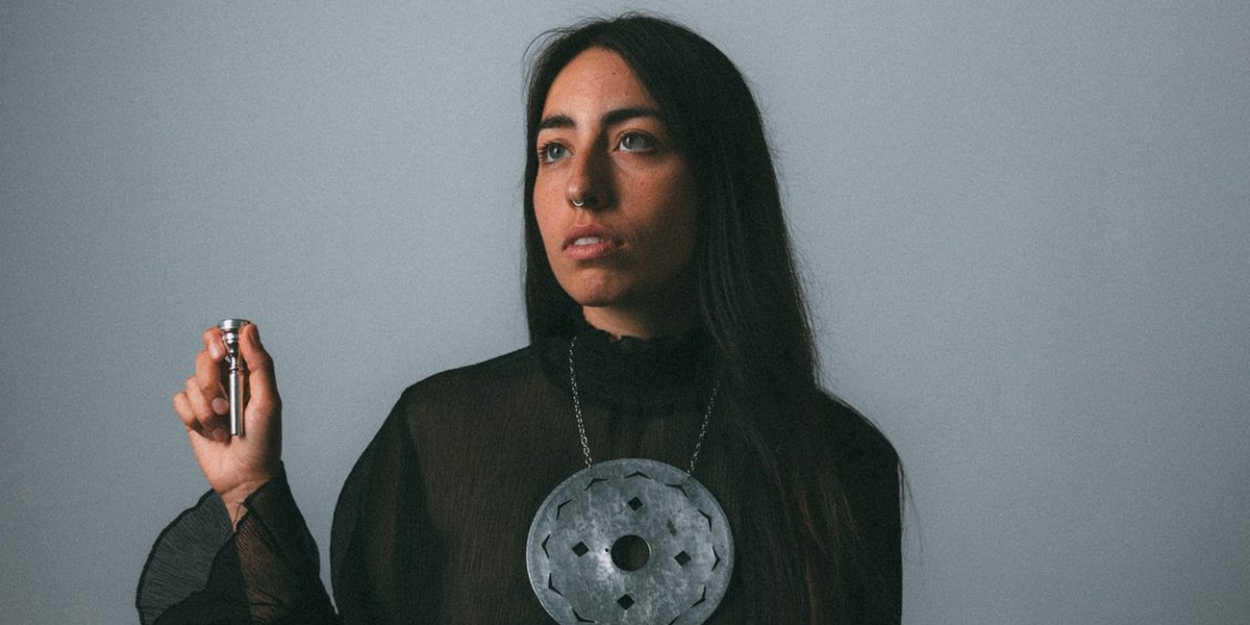Mali Obomsawin Releases New Single 'Odana'
Written as a compositional suite, the album Sweet Tooth, is coming October 28, 2022.

The new single from bassist, composer, and bandleader Mali Obomsawin is out today on Out of Your Head Records! "Odana" flows effortlessly between the centuries, sourcing from the history of the Abenaki, and drawing this together with jazz improvisation. It may seem like Obomsawin is fusing two different cultures but this couldn't be further from the truth.
Instead they're uncovering the ley lines that lie beneath the music, stories erased purposely from our history. Drawn from a 17th century ballad made famous by their cousin Alanis Obomsawin, the single opens with brass bands intended to evoke the marching bands brought to Native reservations by Jesuit priests.
The full story behind Obomsawin's compositional suite, Sweet Tooth, coming October 28, 2022 on Out of Your Head Records is incredibly powerful. Find out more and have a listen to the full album (and share the new single around if you can!).
Here's Obomsawin's explanation of the song:
"The first song, "Odana", looks to the reservation community where I'm enrolled. Odana is a Wabanaki word for 'the village' - and Odanak, the name of our Abenaki reservation in southern Quebec, means "at the village." Writer unknown, this ballad is a homage to this home that our ancestors founded in the late 1600s.
"Odana" tells the story of those ancestors who fled to modern-day Canada to escape biological warfare and scalp bounties (17th & 18th centuries) issued by the English crown in its colonies. The bounty proclamations, in particular, deterred Abenaki families from returning permanently to their ancestral territories by the end of the 18th century.
The lyrics warn Abenakis to "be vigilant" so that the ground remains peaceful and they do not lose their newly founded villages at Odanak and "Mazipskoik" at the head of Lake Champlain. The lyrics describe "a great forest extending from the village," a stolen homeland. Finally, the lyrics thank our forefathers for guarding this place for us and emphasize the importance of this place to the survival of Abenaki people in the face of genocide."
A suite for Indigenous resistance, the new album from Wabanaki bassist, composer, and songwriter Mali Obomsawin flies in the face of Western tropes that insist Indigenous cultures are monolithic, trapped in time. Instead, Obomsawin highlights centuries of clever adaptation and resistance that have fueled the art and culture of Wabanaki people.
Written as a compositional suite, the album Sweet Tooth, coming October 28, 2022 on Out of Your Head Records, blends Wabanaki stories and songs passed down in Obomsawin's own family with tunes addressing contemporary Indigenous life, colonization, continuity, love and rage. It's at once intimately personal, featuring field recordings of relatives at Odanak First Nation, but also conveys a larger story of the Wabanaki people, stretching across the domain of their confederacy from Eastern Canada to Southern New England.
In three movements, Obomsawin's powerful compositions honor the Indigenous ability to shape great art from the harshest fires of colonialism. The compositions reveal threads that bind together blues, jazz, hymns, folk songs, and Native cultures, and foreground the breadth and continuity of Indigenous contributions to these genres. "Telling Indigenous stories through the language of jazz is not a new phenomenon," Obomsawin explains.
"My people have had to innovate endlessly to get our stories heard - learning to express ourselves in French, English, Abenaki... but sometimes words fail us, and we must use sound. Sweet Tooth is a testament to this." Sweet Tooth is a celebration of Indigenous innovation, and an ingeniously envisioned debut for this composer-bandleader.
Raised on ancestral land in central Maine and in Québec on the Odanak First Nations Reserve, Mali Obomsawin is used to living between linguistic and political borders, but also recognizes the absurdity of such dichotomies.
When studying jazz at Dartmouth College (founded as an Indian school in 1769 to educate Wabanaki people) with cornetist and co-producer Taylor Ho Bynum, Obomsawin came to find that the voices of their actual ancestors languished in the archives of the college: field recordings of Odanak's songs and stories kept locked away.
Only now are the field recordings featured on Sweet Tooth being repatriated to Odanak. As Obomsawin became a masterful bassist and immersed themselves in the tradition's history, they came to learn that many jazz greats themselves were Native, and indeed many of the core principles of American music, like the four on the floor beat or the swing of the drum, were influenced by Indigenous musical ideas.
Recently, Native musicians are reclaiming the histories of their predecessors in jazz-artists like Don Cherry, Oscar Pettiford, Jim Pepper, Mildred Bailey, Thelonius Monk, Charlie Patton, and more who were Native. Even the earliest precepts of jazz-military marching bands-tied back to Obomsawin's family history. As the Jesuits and militaries brought marching band instruments to Indigenous land, they laid the seeds of jazz in Wabanaki communities. It's a history that can only be understood by looking unflinchingly at the legacy of genocide and colonization.
Listen to the new single here:
Comments

Videos

